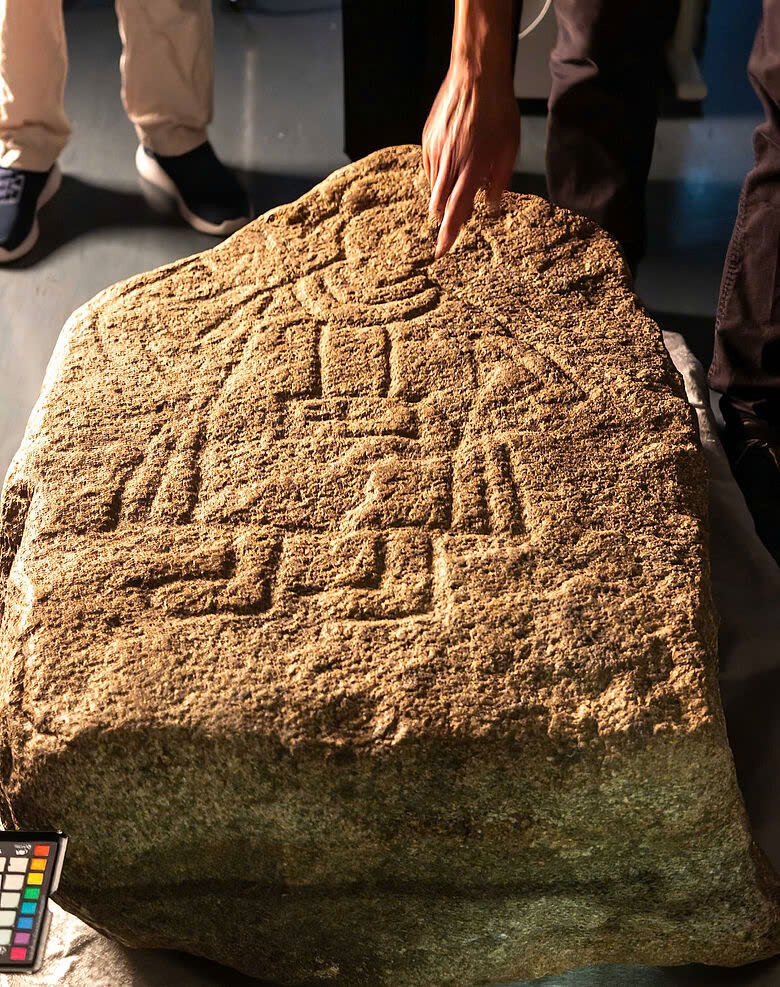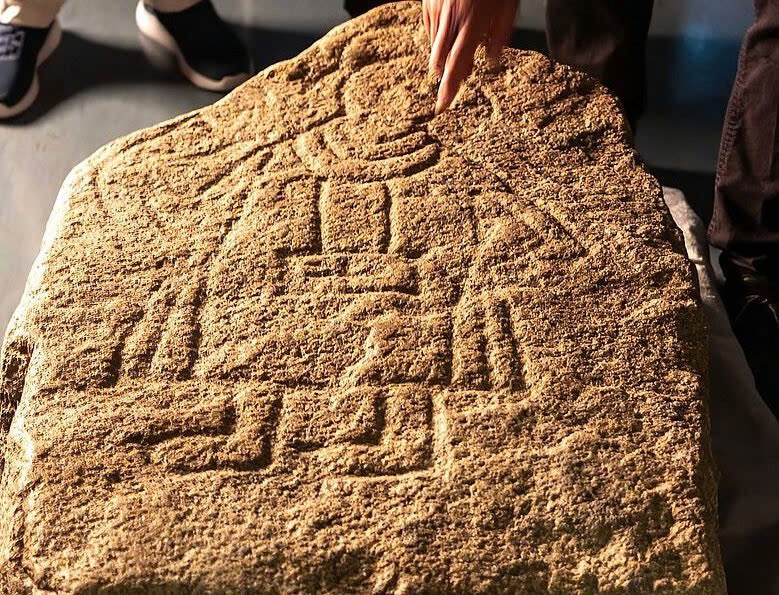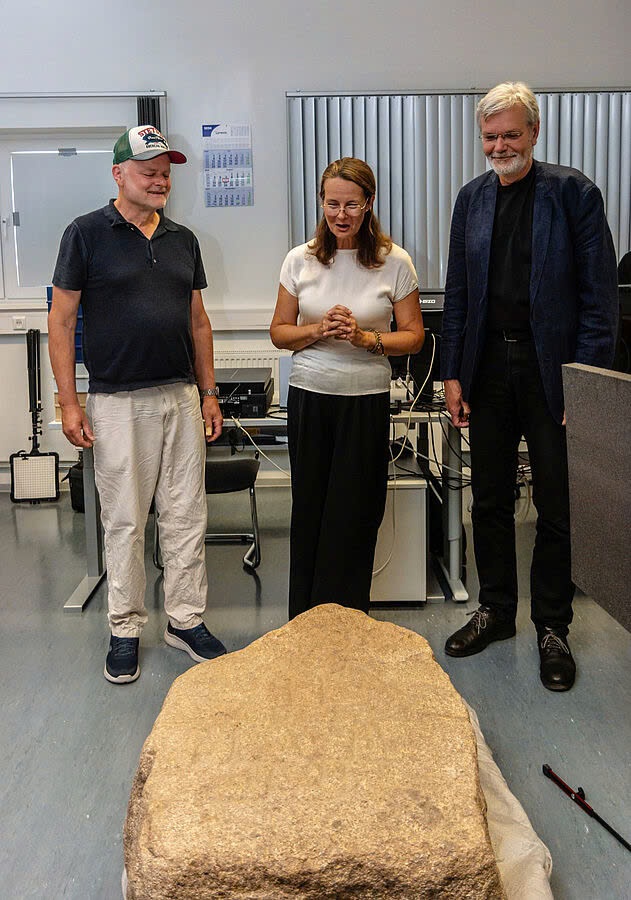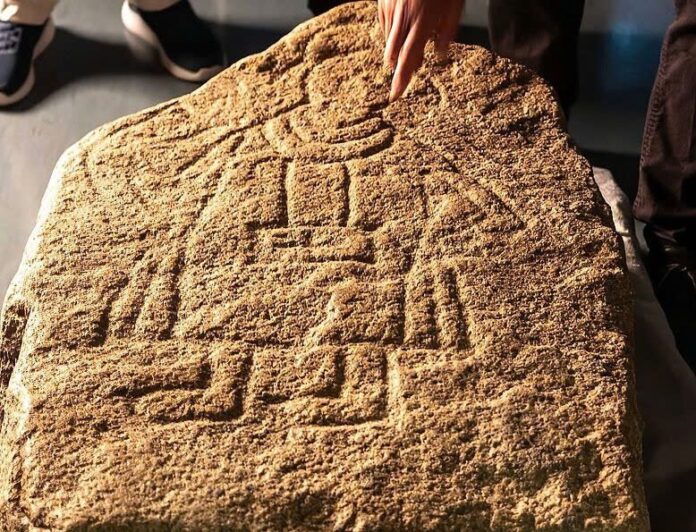Ancient Artifact Discovered During Home Construction
In a remarkable archaeological find, a 900-year-old picture stone has been unearthed in Klotzow, near Anklam, in the Vorpommern-Greifswald district of Germany. The discovery was made by Peter Wittenberg while working on the foundations of his house.

A Rare Christian Relic
The granite stone, measuring one meter high, 60 centimeters wide, and 40 centimeters deep, features an engraved human figure holding a cross. This unique characteristic suggests the figure may represent a Christian dignitary or follower, making it an extremely rare artifact from the Christianization period of the region.
Speculation Surrounds the Stone’s Identity
Could It Be Bishop Otto of Bamberg?

State archaeologist Detlef Jantzen has proposed that the figure might depict Bishop Otto of Bamberg, known as the missionary of Pomerania. The cross appears to hang on a scarf around the man’s neck, possibly representing a pallium – a vestment granted by popes to high-ranking church officials. Otto of Bamberg received such a pallium in 1111.
Historical Significance
The timing of this discovery is particularly noteworthy, as 2024 marks the 900th anniversary of Bishop Otto von Bamberg’s first missionary journey to Pomerania. The stone provides tangible evidence of the Christianization efforts in the region during the 12th century.
A Treasure Trove of Information
Ongoing Research
Archaeologists plan to conduct further investigations in Klowtow, where traces of a former church or chapel and a ferry landing to the island of Usedom have been found. A 3D model of the stone is also in the works to allow for more detailed analysis of the engraving.
Part of a Larger Exhibition
The stone will join other historical artifacts in the exhibition “World in Transition – Otto von Bamberg and the Christianisation of Pomerania 900 years ago” at the Wolgast Museum, offering visitors a glimpse into this pivotal period of European history.

This extraordinary find not only sheds light on the religious history of Pomerania but also adds to the small collection of known picture stones in the region, making it a significant contribution to our understanding of medieval Christian art and missionary activities in Northern Europe.

